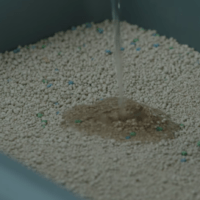MRI scans reveal what your dog really thinks about you!
It must be love?
As a dog owner you most likely love your dog. And you most likely hope that your dog loves you. But can we really know if our dogs truly love us? Until now we have only had our ability to read our dog’s body language and facial expressions to determine if it truly is L.O.V.E. Now we have MRI scans!
Recently scientists have begun to scan canine brains in magnetic resonance imaging (MRI) scanners. This is no easy feat since these machine demand a degree of stillness that our canine companions rarely concede. Yes, when there are asleep they are generally peaceful (apart from when they are dreaming!) but this state cannot give us an indication of brain patterns as they gaze at, listen to or smell us, their humans. Dogs needed to be trained to remain still within the scanners.
Training involved step by step introductions to placing their heads into brain case, onto a chin rest, hearing a scanner sound, climbing the scanner steps to enter the machine, wearing earmuffs and looking at hand signals of humans. You can see the process here…
MRI Scans
What scans revealed
Dogs’ reactions to humans scents and sounds have been investigated and canine MRI scans have revealed that…
We smell good…
The good news for dog owners is that dogs prefer the scent of their own humans to all other presented scents which included scents of other dogs, both familiar and unfamiliar ones and unknown humans. The aroma of their owner sparked activation in the “reward center” of their brains, called the caudate nucleus. Dogs enjoy our smell.
We should be happy
Dogs’ brains also lit up when we spoke to them with light, happy talk. Perhaps not surprising to many dog owners who know their dogs seem to understand every work and perk their ears when we ‘baby talk’ them. This, however, is the first time that we have been able to measure our dog’s response at such a detailed level.
So, our many years of evolution together have certainly produced animals that are in tune with their human companions. Maybe we could even interpret this as love.

Do human brain scans show a similar response?
Many of us consider our dogs to be like a child and in an interesting study scientists, again looking at MRI brain activity, gave mothers pictures of their dogs and their children to compare their responses. Viewing both images resulted in activation of brain regions involved in emotion, reward, affiliation, visual processing and social cognition and the mothers stated they viewed their child and dog with similar excitement and valence (pleasantness) levels.
There were, however, slight differences between the way we viewed our children and our dogs. Viewing images of their child resulted in mid-brain activity, related to reward and affiliation. In other words we bond with our child as we look at them.
Viewing images of our own dogs resulted in more posterior cortical brain activity, related to visual processing of faces and social cognition. In other words, we enjoy looking at our dogs (we also enjoy looking at unfamiliar dogs) and are trying to process their faces.
Perhaps we are constantly trying to read our dog’s expressions?
It must be love
So it seems we love our dogs. We love to look at them and try to understand what their faces and behaviour are revealing to us. Dogs love our sounds and our scents. Perhaps this is because they know that a treat is likely to be forthcoming. Or perhaps it is because they truly love us.
What do you think. Does your dog love you?
References
Dogs in MRI:
Do dogs enjoy the human scent?: research paper
Do dogs enjoy the human sound?: research paper
Patterns of Brain Activation when Mothers View Their Own Child and Dog
More interesting pet research
- A dog’s environment impacts their communication behaviours
 A dog’s environment impacts their communication behaviours New research has confirmed that a dog’s environment impacts their communication behaviours. Dogs generally matched the enthusiasm of their owners!
A dog’s environment impacts their communication behaviours New research has confirmed that a dog’s environment impacts their communication behaviours. Dogs generally matched the enthusiasm of their owners! - Are puppy farm dogs stressed?
 Canine commercial breeding establishments may adopt dogs out to homes once their production levels deteriorate. How do these dogs cope? A new study has looked at this and Dr Jo comments…
Canine commercial breeding establishments may adopt dogs out to homes once their production levels deteriorate. How do these dogs cope? A new study has looked at this and Dr Jo comments… - Assessing shelter dog behaviour to determine adoption suitability: Meaningful or misleading?
 I have asked Dr Kate,a newly graduated PhD animal behaviourist, of Pets Behaving Badly, to tell us a little about her PhD findings. This will interest anyone concerned
I have asked Dr Kate,a newly graduated PhD animal behaviourist, of Pets Behaving Badly, to tell us a little about her PhD findings. This will interest anyone concerned - Australia’s Love of Companion Animals is Real
 Australia’s Love of Companion Animals is real We love our pets and it’s no surprise that our lives and behaviour revolve around our feathered, furred or finned
Australia’s Love of Companion Animals is real We love our pets and it’s no surprise that our lives and behaviour revolve around our feathered, furred or finned - Australian Cat Lovers – We really do Love Our Cats – Here’s How we know
 Australian Cat Lovers We Really Do Love Our Cats – Here’s How We Know Are you a cat lover? Are you a cat owner? Has anyone ever
Australian Cat Lovers We Really Do Love Our Cats – Here’s How We Know Are you a cat lover? Are you a cat owner? Has anyone ever - Can patting your cat stress them?
 Can patting your cat stress them? Do you enjoy stroking your cat? Perhaps more importantly, does your cat enjoy it? Find out as Dr o explores new research on cats…
Can patting your cat stress them? Do you enjoy stroking your cat? Perhaps more importantly, does your cat enjoy it? Find out as Dr o explores new research on cats… - Cats and litter: 7 Cat Litter Box Rules
 Cats and litter: 7 Cat Litter Box Rules and the Best Cat Litter What type of cat litter does your cat prefer to use? What about most
Cats and litter: 7 Cat Litter Box Rules and the Best Cat Litter What type of cat litter does your cat prefer to use? What about most - Cats don’t come when called
 Cats don’t come when called! But cat owners know that, don’t they? And still love their cats. New research from the University of Japan has put cats
Cats don’t come when called! But cat owners know that, don’t they? And still love their cats. New research from the University of Japan has put cats - Cats use of litter box is determined by sight, not scent
 Cats use of litter box determined by sight, not scent You might think your cat’s litter box is clean , even if they have already used it.
Cats use of litter box determined by sight, not scent You might think your cat’s litter box is clean , even if they have already used it. - Cats vs Dogs Who loves you more? The answer will surprise you.
 Dogs may love us more than cats, recent tests show? Do you agree? But you might be surprised to learn the most loving animal of them all…
Dogs may love us more than cats, recent tests show? Do you agree? But you might be surprised to learn the most loving animal of them all… - Did You Know That Desexing your male dog could result in unwanted behaviour?
 Desexing your male dog could result in unwanted behaviour! Dog owners: Do you have a male dog? Is your dog desexed (neutered) ? At what age was
Desexing your male dog could result in unwanted behaviour! Dog owners: Do you have a male dog? Is your dog desexed (neutered) ? At what age was - Dimensions of dog petting: How positive interaction with your dog can be as beneficial as common forms of therapy
 DIMENSIONS OF DOG PETTING: HOW POSITIVE INTERACTION WITH YOUR DOG CAN BE AS BENEFICIAL AS COMMON FORMS OF THERAPY Can dogs really stop us eating chocolate? I
DIMENSIONS OF DOG PETTING: HOW POSITIVE INTERACTION WITH YOUR DOG CAN BE AS BENEFICIAL AS COMMON FORMS OF THERAPY Can dogs really stop us eating chocolate? I


















Mines 15, so I think he just dreams of days past.